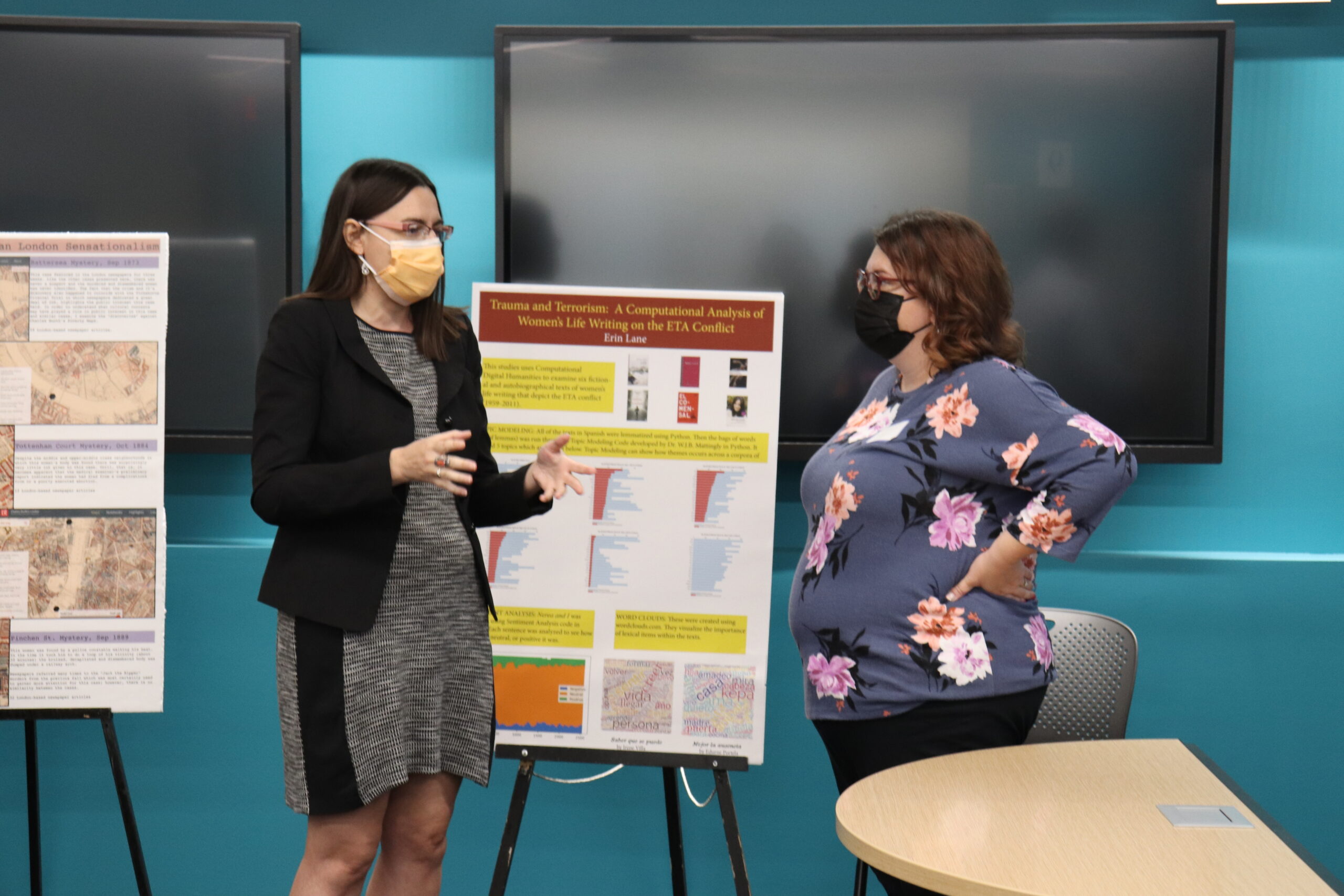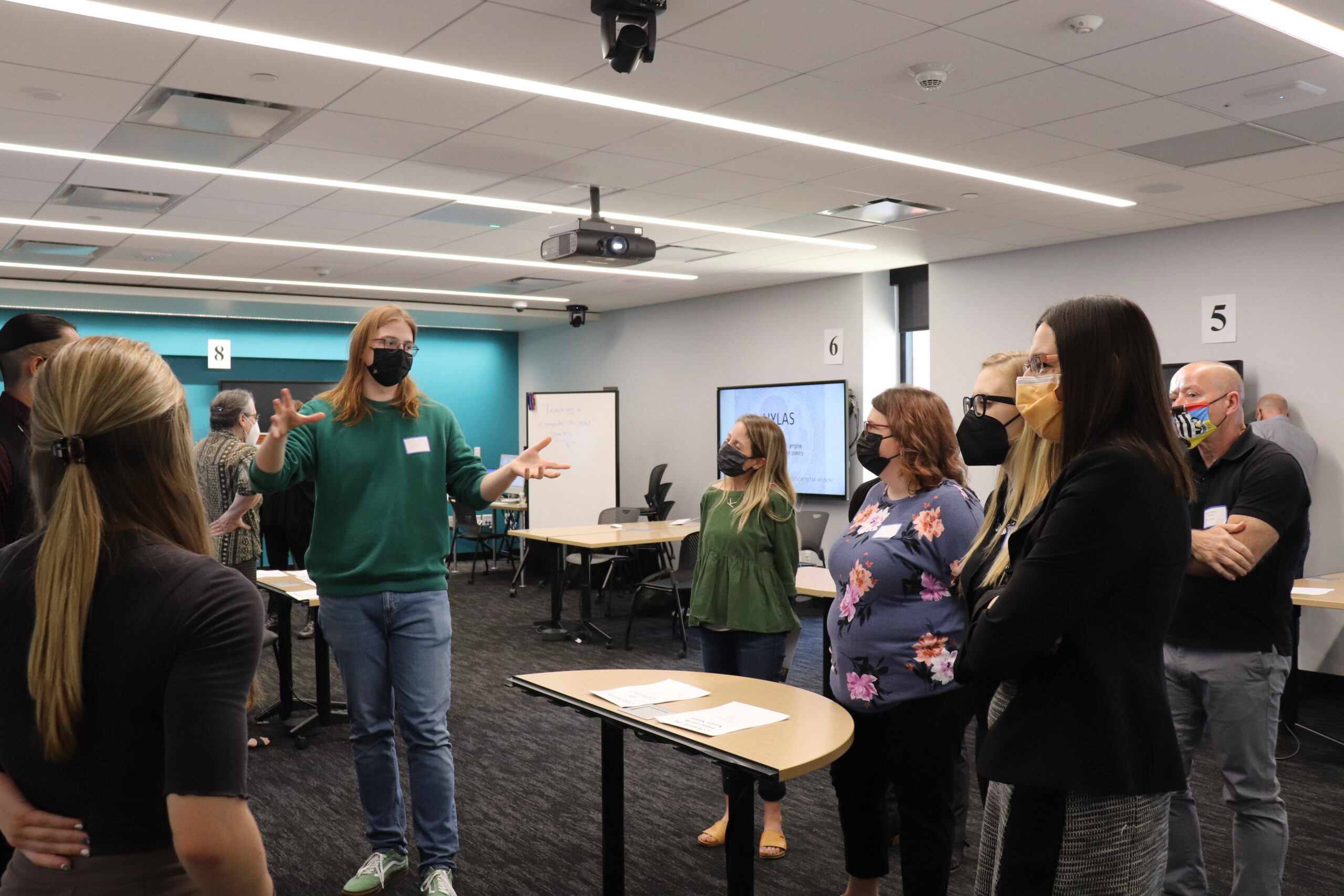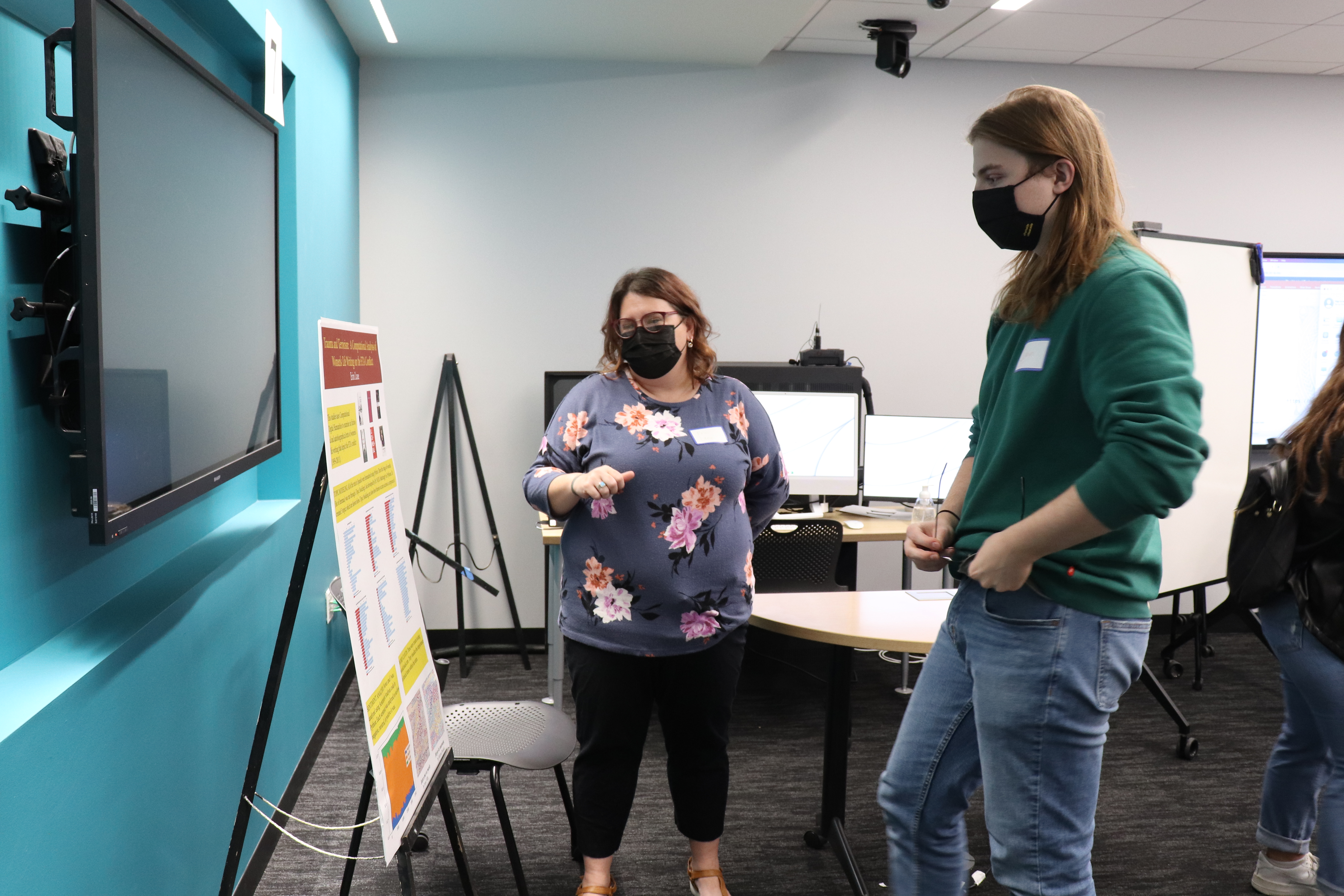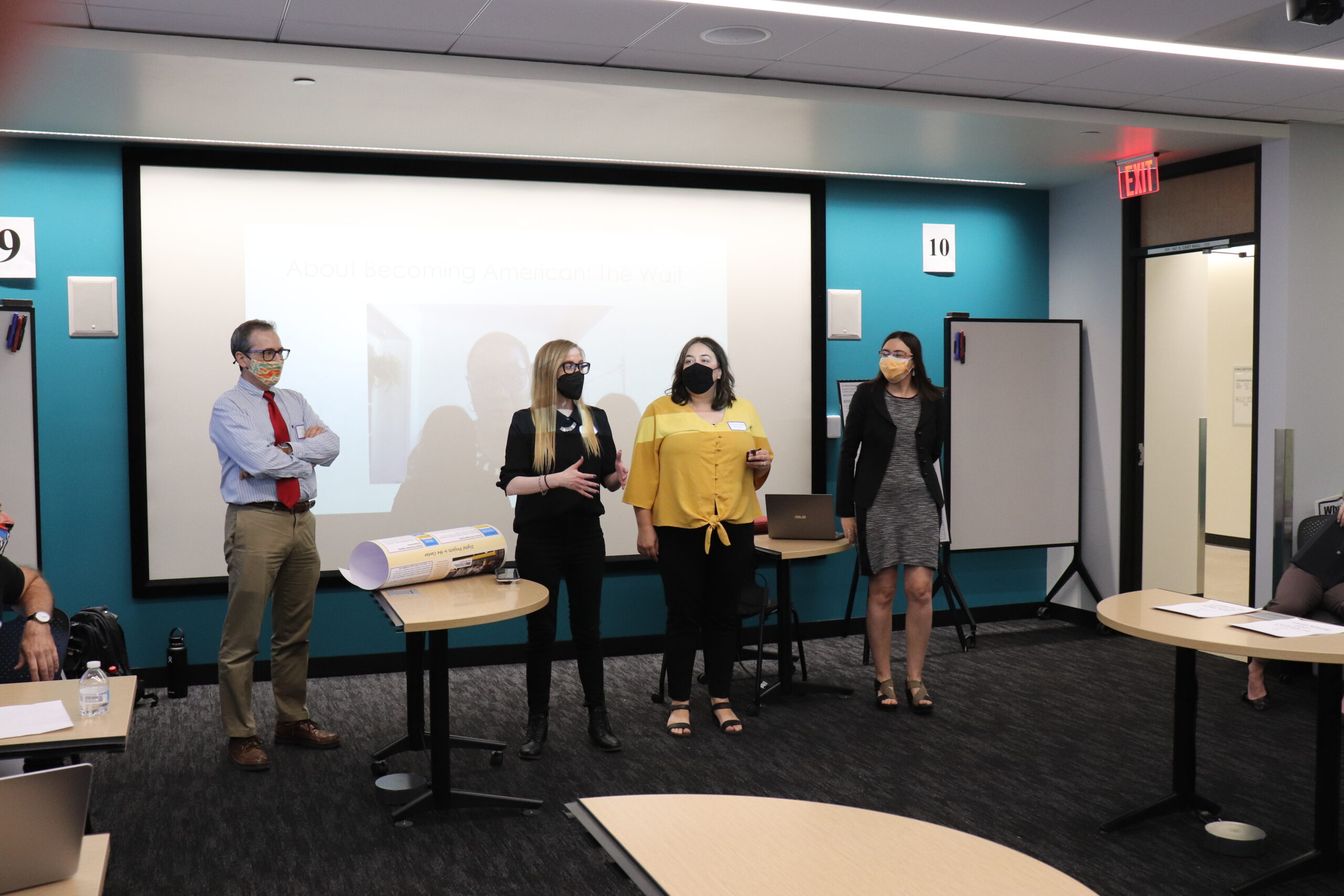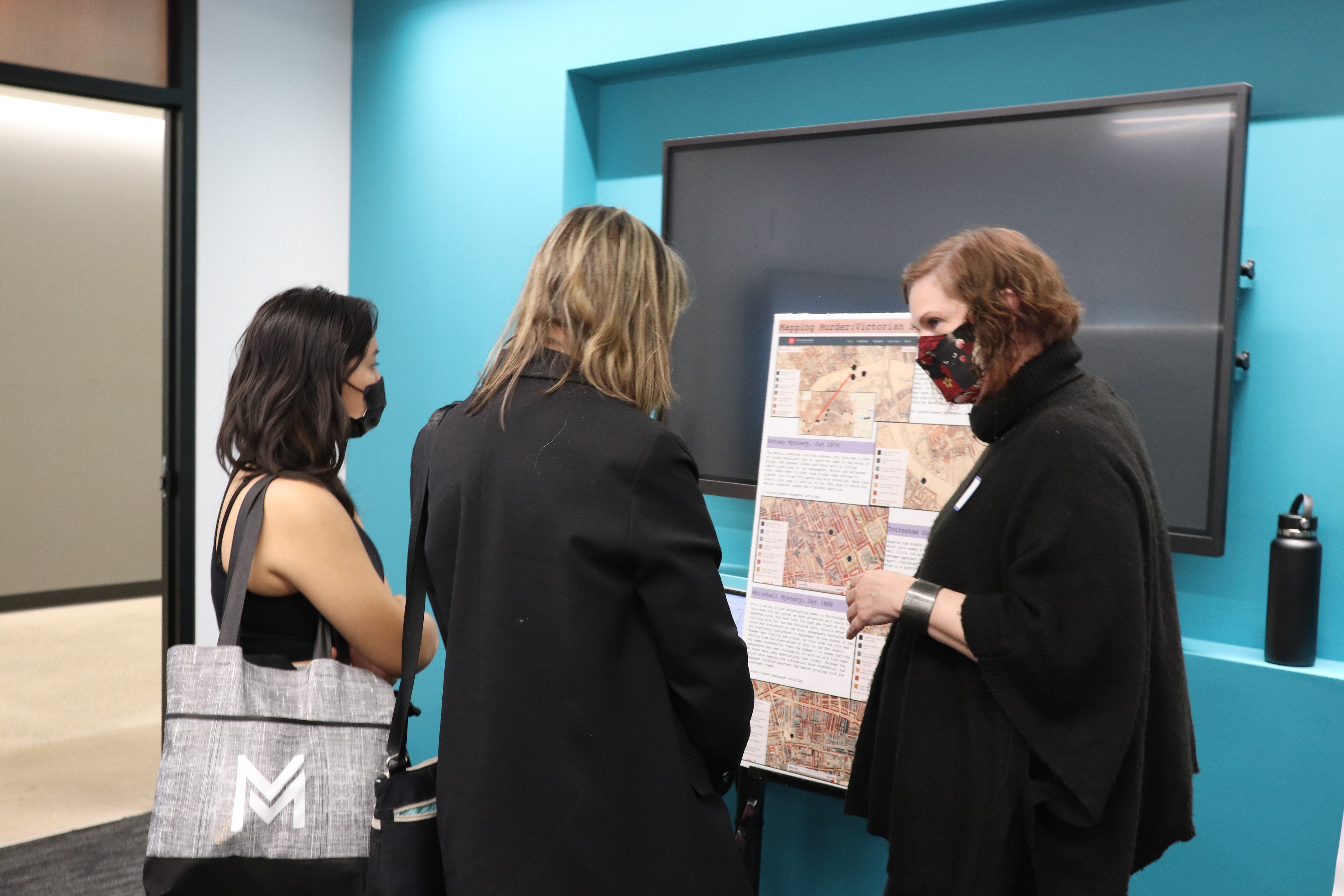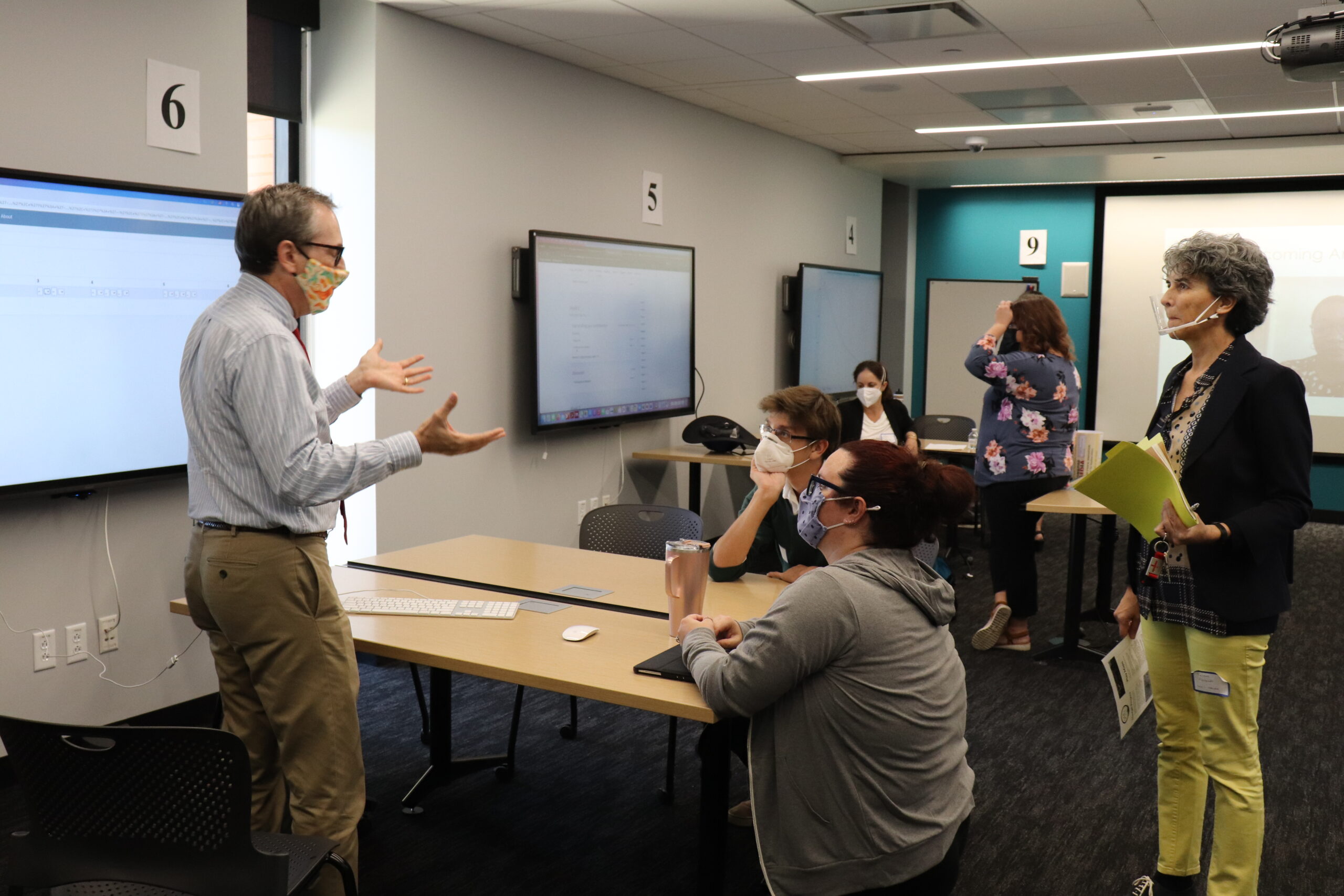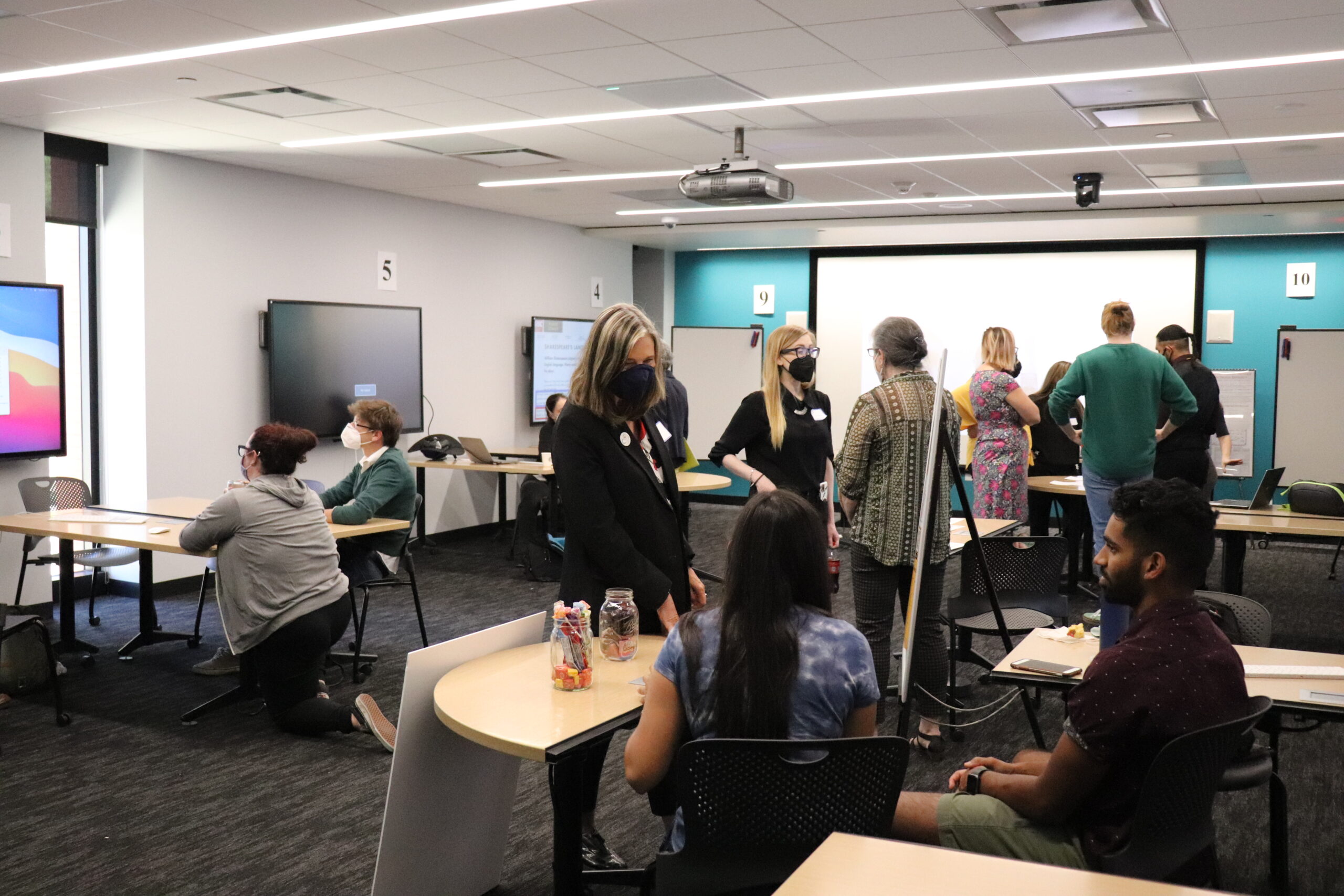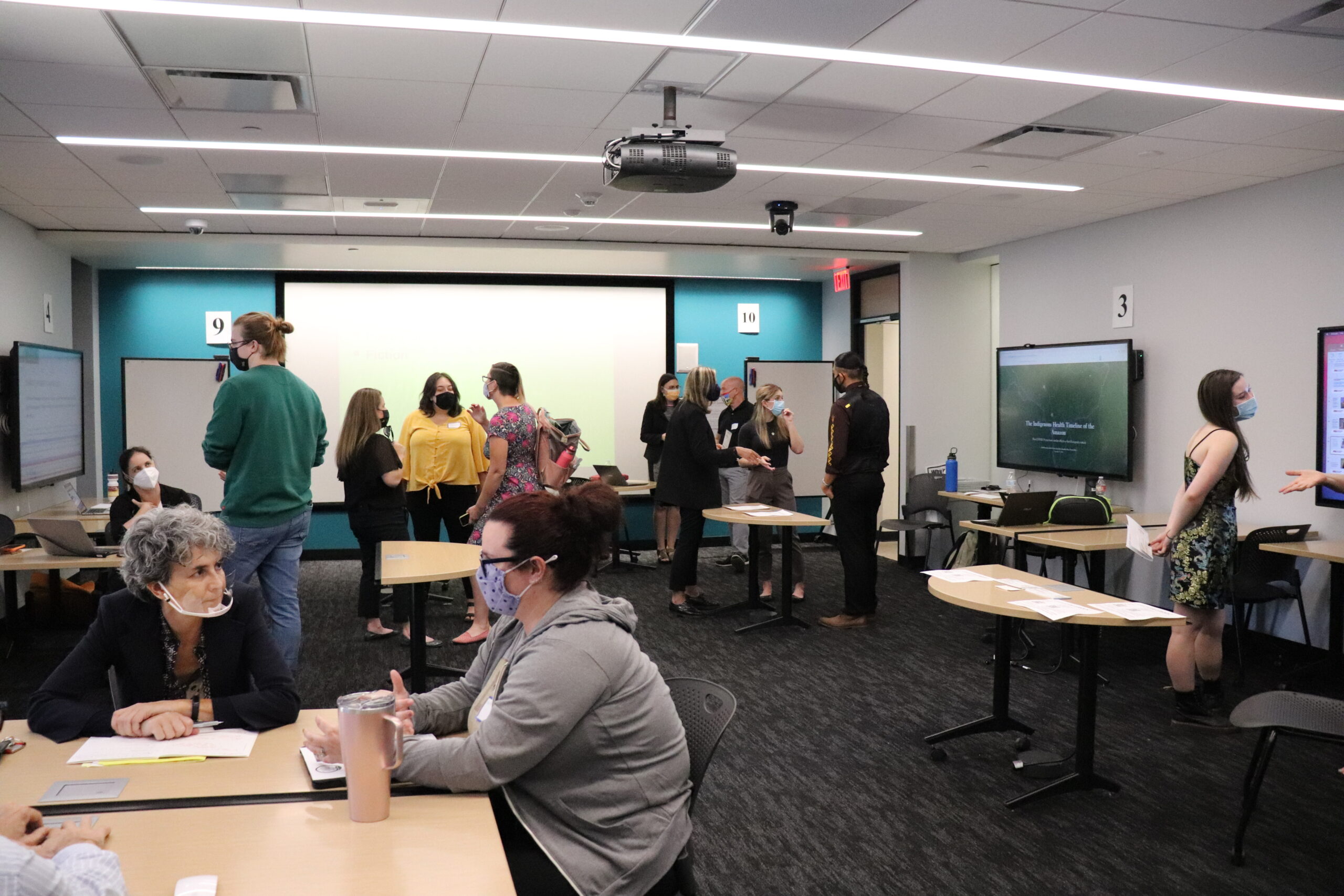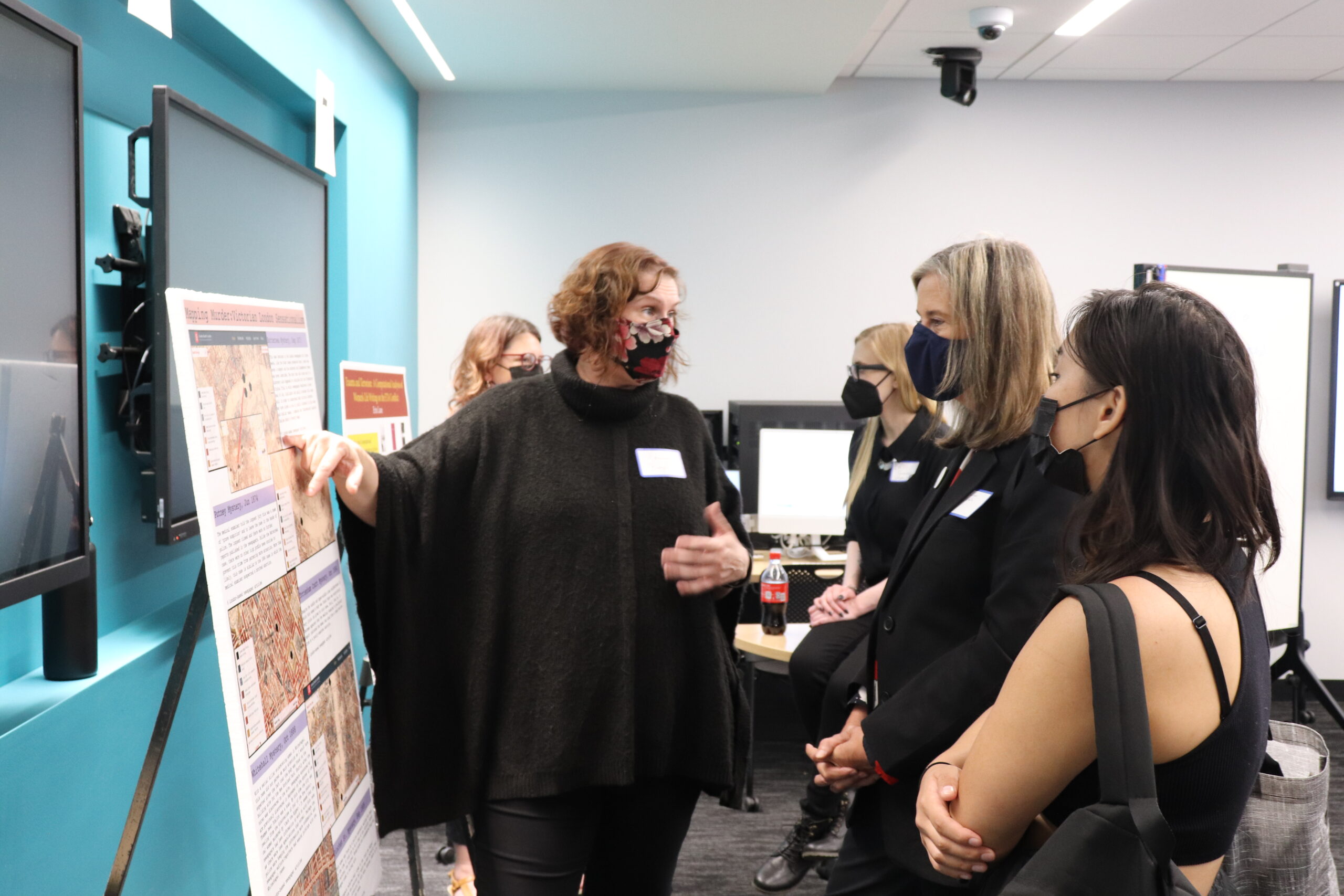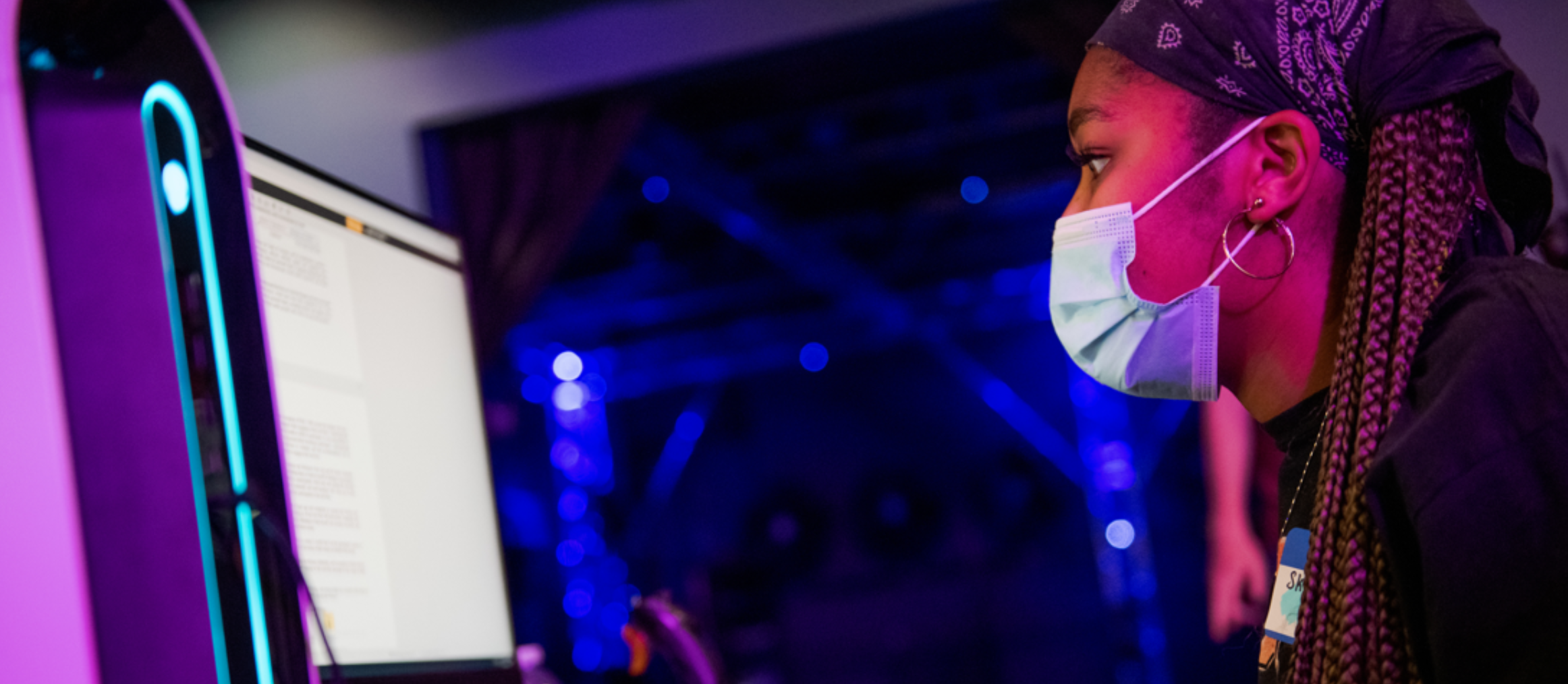The ASU Digital Humanities Working Group (Liz Grumbach, Marissa Rhodes, Silvia Stoyanova, and Mike Tueller) launched the inaugural Digital Projects Showcase during Humanities Week 2021. Working together with colleagues from across the Division of Humanities, this event brought together scholars from multiple disciplines and ASU campuses to fulfill a three-fold mission: (1) showcase the exemplary digital humanities scholarship being produced at Arizona State; (2) present compelling cases of how digital humanities methods can augment and accompany the work we do as scholars; (3) introduce undergraduates to the field of digital humanities.
Our working group was organized under an expansive definition of digital humanities: DH is both a set of digital methodologies to explore humanities-based research questions and the use of humanities methodologies to critique and understand emergent digital technologies and innovations. Because of this inclusive definition, the digital projects presented by our colleagues during the showcase were radically diverse, ranging from text analysis to digital rhetoric, multimedia installations to digital archival methods, and beyond. The coverage of disciplines and periods of study showed the interdisciplinarity of digital humanities as a field – our only requirement for the participants was to highlight how digital methods, tools, and approaches might be exciting avenues of discovery for humanities students and scholars in our community.
Our hope is that this event will serve as a platform to begin a conversation about how we could integrate our common interest in digital methodologies into campus-wide training, research, and collaboration networks. To start that conversation, we have invited Digital Showcase presenters to use the SPARK public humanities blog to further showcase their projects. Readers can expect regular posts featuring Digital Projects from ASU that were presented at the Digital Projects Showcase. These projects range from exhibit building using Omeka-S, traveling oral history projects, distant reading techniques using Python, GIS, and everything in between. You can find details on the event and its presenters here.
The Digital Humanities Working Group thanks all presenters and participants for their time and intellectual engagement. We especially thank our co-sponsors and supporters, the School of Historical, Philosophical and Religious Studies, Lincoln Center for Applied Ethics, School of International Letters and Cultures, and The College of Liberal Arts and Sciences, Division of Humanities. This event would also not have been possible without the support of SILC’s Learning Support Services (LSS), especially David Parks.
Please watch this space and your email for an invitation to the 2022 Digital Projects Showcase, and we look forward to fostering further opportunities for our community to gather, network, and learn.
